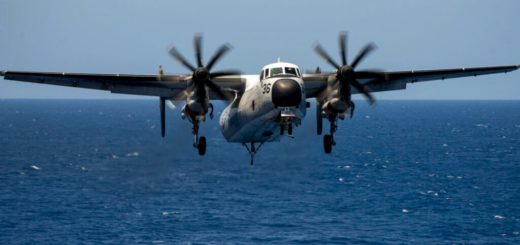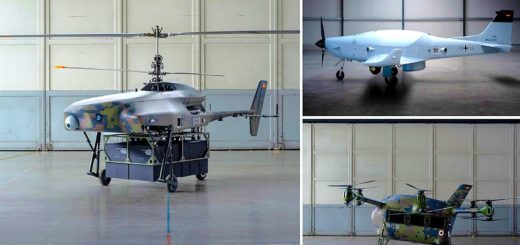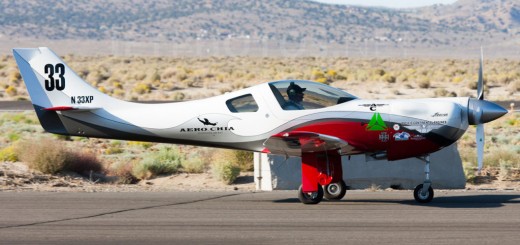Kosovo Takes Early Delivery of Türkiye’s Ready-to-Fly SkyDagger Attack Drones
{loadposition bannertop}
{loadposition sidebarpub}
Kosovo announced the arrival at Pristina International Airport of containers carrying thousands of ready-to-fly Skydagger (SkyDagger RTF) kamikaze drones, under a contract signed with Turkey’s Baykar in December 2024.
On 8 October, 2025, Kosovo announced the arrival at Pristina International Airport “Adem Jashari” of containers carrying a large batch of Skydagger ready-to-fly FPV kamikaze drones, as reported by Prime Minister Albin Kurti. Signed in December last year with Türkiye’s Baykar, identified by the Prime Minister as the parent company of the Skydagger manufacturer, the contract had scheduled deliveries for January 2026, but the systems arrived three months early. The announcement emphasized that dozens of Kosovo Security Force (FSK) soldiers are already trained to operate the drones, underscoring a rapid path to operational use. This development is relevant because it expands Kosovo’s unmanned strike options and streamlines them within an existing Baykar-linked ecosystem.
Follow Army Recognition on Google News at this link
Kosovo’s early receipt of Skydagger drones, paired with trained operators and the established TB2/Puma fleet, signals a pragmatic expansion of unmanned strike capacity built around a single industrial lineage (Picture source: MoD of Kosovo / Skydagger)
The Skydagger RTF 7″ is presented as a compact, ready-to-fly FPV loitering munition intended to strike moving or static targets with a small explosive payload. Based on the data provided, it offers a maximum endurance of up to 22 minutes, around 12 minutes under typical combat load, a maximum range of 10 km, a top speed of 140 km/h, and a payload capacity of 2 kg. In the same announcement, the Prime Minister situated Skydagger alongside the Bayraktar TB2 and the U.S.-made Puma already in service, indicating a force mix that couples higher-altitude ISR/strike assets with short-range, disposable FPV effectors for terminal attack.
From an operational and programmatic standpoint, the sequence combines a December signature, accelerated delivery on 8 October 2025, and a training pipeline that has already produced a cadre of FSK operators. The early handover shortens the interval between contract and fielding, allowing doctrine, safety procedures, and sustainment routines to be validated with live systems rather than prototypes. Positioning Skydagger under Baykar’s umbrella simplifies vendor coordination for training, spares, and software updates, especially given Kosovo’s existing experience with the TB2.
The principal advantages of the Skydagger class, as framed in the announcement, are speed of deployment, scale, and precision at short ranges. Ready-to-fly FPV drones are quick to put into service, can be procured in large numbers, and offer operator-in-the-loop guidance to sensitive aimpoints such as optics, communications nodes, or engine compartments. In combination with TB2 and Puma platforms, Skydagger can help shorten the sensor-to-shooter chain: higher-end UAVs detect and track, while FPV teams execute the final strike with lower signature and cost, enabling repeated use without exhausting premium assets.
Strategically, introducing a sizable FPV contingent broadens Kosovo’s unmanned architecture within a coherent supply and training framework linked to Baykar. Geostrategically, aligning procurement and know-how under one industrial family can stabilize logistics and lifecycle support, reduce integration friction between systems already in inventory, and create predictable upgrade paths. Militarily, massed FPV capacity complements existing ISR and strike capabilities with a flexible, short-range toolset suitable for quickly neutralizing exposed targets, enhancing deterrence through responsiveness rather than platform size, and encouraging standardized tactics, techniques, and procedures across the unmanned fleet.
Kosovo’s early receipt of Skydagger drones, paired with trained operators and the established TB2/Puma fleet, signals a pragmatic expansion of unmanned strike capacity built around a single industrial lineage. By anchoring procurement, training, and sustainment to Baykar-related channels while fielding ready-to-use FPV effectors, the FSK strengthens its ability to act quickly and precisely with systems it can scale, maintain, and integrate without delay.
Written by Teoman S. Nicanci – Defense Analyst, Army Recognition Group
Teoman S. Nicanci holds degrees in Political Science, Comparative and International Politics, and International Relations and Diplomacy from leading Belgian universities, with research focused on Russian strategic behavior, defense technology, and modern warfare. He is a defense analyst at Army Recognition, specializing in the global defense industry, military armament, and emerging defense technologies.

{loadposition bannertop}
{loadposition sidebarpub}
Kosovo announced the arrival at Pristina International Airport of containers carrying thousands of ready-to-fly Skydagger (SkyDagger RTF) kamikaze drones, under a contract signed with Turkey’s Baykar in December 2024.
On 8 October, 2025, Kosovo announced the arrival at Pristina International Airport “Adem Jashari” of containers carrying a large batch of Skydagger ready-to-fly FPV kamikaze drones, as reported by Prime Minister Albin Kurti. Signed in December last year with Türkiye’s Baykar, identified by the Prime Minister as the parent company of the Skydagger manufacturer, the contract had scheduled deliveries for January 2026, but the systems arrived three months early. The announcement emphasized that dozens of Kosovo Security Force (FSK) soldiers are already trained to operate the drones, underscoring a rapid path to operational use. This development is relevant because it expands Kosovo’s unmanned strike options and streamlines them within an existing Baykar-linked ecosystem.
Kosovo’s early receipt of Skydagger drones, paired with trained operators and the established TB2/Puma fleet, signals a pragmatic expansion of unmanned strike capacity built around a single industrial lineage (Picture source: MoD of Kosovo / Skydagger)
The Skydagger RTF 7″ is presented as a compact, ready-to-fly FPV loitering munition intended to strike moving or static targets with a small explosive payload. Based on the data provided, it offers a maximum endurance of up to 22 minutes, around 12 minutes under typical combat load, a maximum range of 10 km, a top speed of 140 km/h, and a payload capacity of 2 kg. In the same announcement, the Prime Minister situated Skydagger alongside the Bayraktar TB2 and the U.S.-made Puma already in service, indicating a force mix that couples higher-altitude ISR/strike assets with short-range, disposable FPV effectors for terminal attack.
From an operational and programmatic standpoint, the sequence combines a December signature, accelerated delivery on 8 October 2025, and a training pipeline that has already produced a cadre of FSK operators. The early handover shortens the interval between contract and fielding, allowing doctrine, safety procedures, and sustainment routines to be validated with live systems rather than prototypes. Positioning Skydagger under Baykar’s umbrella simplifies vendor coordination for training, spares, and software updates, especially given Kosovo’s existing experience with the TB2.
The principal advantages of the Skydagger class, as framed in the announcement, are speed of deployment, scale, and precision at short ranges. Ready-to-fly FPV drones are quick to put into service, can be procured in large numbers, and offer operator-in-the-loop guidance to sensitive aimpoints such as optics, communications nodes, or engine compartments. In combination with TB2 and Puma platforms, Skydagger can help shorten the sensor-to-shooter chain: higher-end UAVs detect and track, while FPV teams execute the final strike with lower signature and cost, enabling repeated use without exhausting premium assets.
Strategically, introducing a sizable FPV contingent broadens Kosovo’s unmanned architecture within a coherent supply and training framework linked to Baykar. Geostrategically, aligning procurement and know-how under one industrial family can stabilize logistics and lifecycle support, reduce integration friction between systems already in inventory, and create predictable upgrade paths. Militarily, massed FPV capacity complements existing ISR and strike capabilities with a flexible, short-range toolset suitable for quickly neutralizing exposed targets, enhancing deterrence through responsiveness rather than platform size, and encouraging standardized tactics, techniques, and procedures across the unmanned fleet.
Kosovo’s early receipt of Skydagger drones, paired with trained operators and the established TB2/Puma fleet, signals a pragmatic expansion of unmanned strike capacity built around a single industrial lineage. By anchoring procurement, training, and sustainment to Baykar-related channels while fielding ready-to-use FPV effectors, the FSK strengthens its ability to act quickly and precisely with systems it can scale, maintain, and integrate without delay.
Written by Teoman S. Nicanci – Defense Analyst, Army Recognition Group
Teoman S. Nicanci holds degrees in Political Science, Comparative and International Politics, and International Relations and Diplomacy from leading Belgian universities, with research focused on Russian strategic behavior, defense technology, and modern warfare. He is a defense analyst at Army Recognition, specializing in the global defense industry, military armament, and emerging defense technologies.







